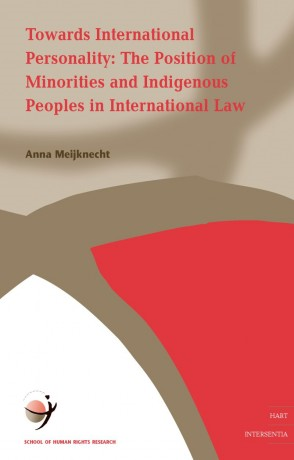
In the 20th century, several important developments took place in the field of the regional and international protection of minorities and indigenous peoples. This book discusses the consequences of these developments for the position of minorities and indigenous peoples in international law. Based on the concept of ""international personality"" as formulated by the International Court of Justice in the Reparation for Injuries case, a scale is developed which enables us to determine the position of minorities and indigenous peoples in international law. As far as minorities are concerned, it turns out that the obstacles on their road to international personality are of a political rather than of a sociological or juridical nature. In other words, minorities ""as such"" could be bearers of rights and duties if only the international legal order would allow them to. Compared with minorities, a position for indigenous peoples in international law is much more accepted by the international legal order. As the recent establishment of the UN Permanent Forum for Indigenous Peoples shows, indigenous peoples are increasingly recognised as actors in the international realm.;The divergence between the positions of minorities and indigenous peoples is evident and can, to a certain extent, be explained. But can it also be justified?